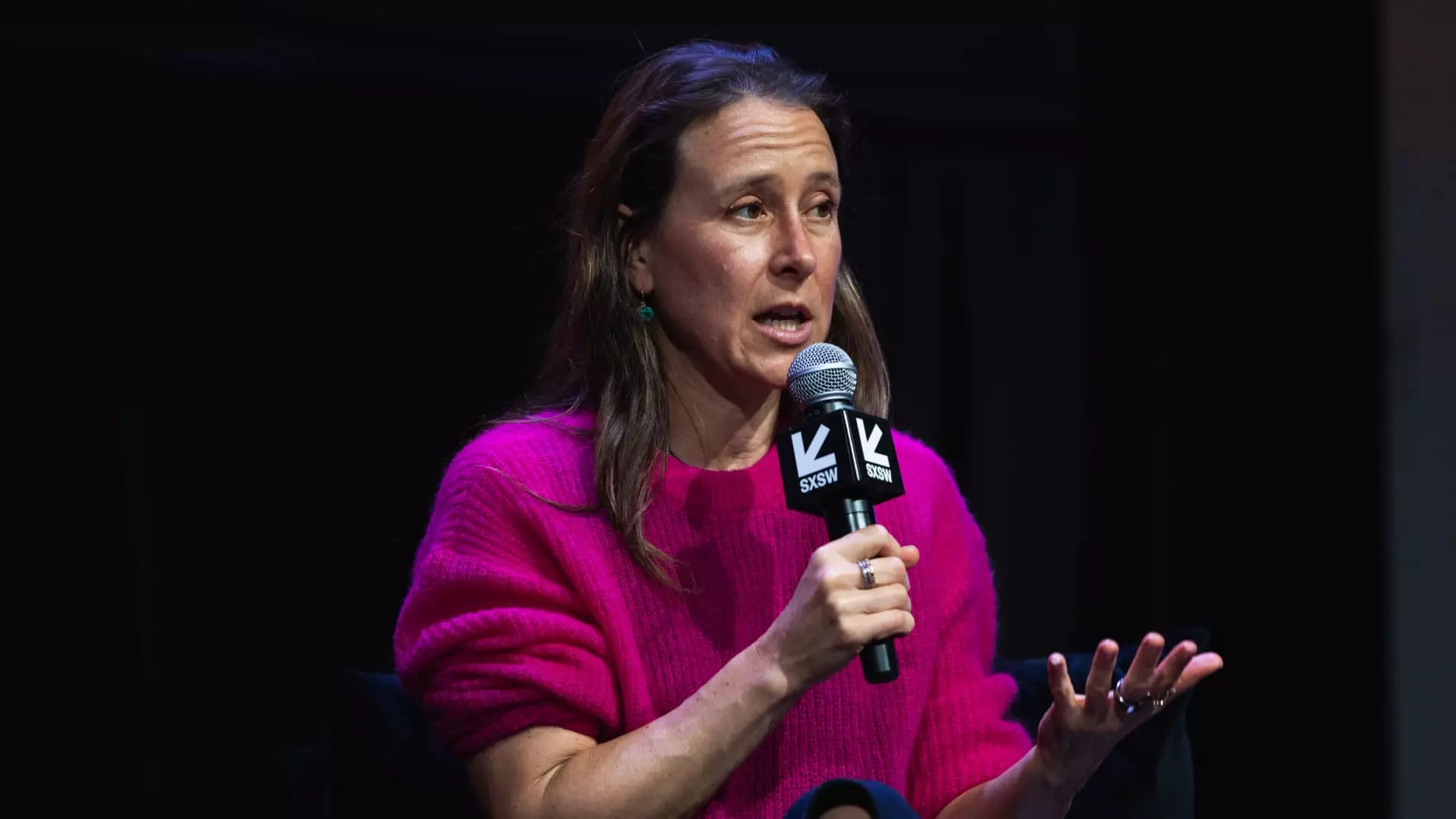The narrative of 23andMe encompasses both monumental achievements and stark setbacks, epitomizing the volatile nature of the tech and biotech sectors. Once heralded as a game-changer in the realm of personal genomics, the company has now succumbed to the challenges of mismanagement and market volatility, culminating in its recent Chapter 11 bankruptcy filing. Co-founded in 2006 by Anne Wojcicki, the firm built an empire on the pioneering concept of at-home genetic testing, which promised consumers groundbreaking insights into their lineage and health risks. Valued at a staggering $6 billion at its peak, the sharp decline is characteristic of many startups that rise too quickly without establishing a sustainable foundation.
Leadership Challenges and Turbulent Transition
Wojcicki’s departure as CEO marks a pivotal moment in the company’s trajectory, raising questions about leadership accountability in tech startups. Although she remains on the board, her acknowledgments of the company’s struggles hint at a failure to navigate the dynamic landscape of genetic testing. Joseph Selsavage, the new interim CEO, now faces the daunting task of steering the company through treacherous waters. Wojcicki’s public sentiments of accountability suggest a rare moment of introspection in the startup world, where leaders often persist in confidence amidst failure. In an industry characterized by its rapid evolution, strategic adaptability appears crucial, yet 23andMe’s leadership seems to have faltered in this regard.
The Fall of a Market Darling
Market performance tells a stark truth: despite its revolutionary beginnings, 23andMe’s stock has plummeted dramatically, weighed down by inefficiencies in revenue generation and the challenges of transforming research concepts into viable therapeutics. A company that once stood as a stalwart of innovation now grapples with a meager market capitalization of approximately $25 million. The disillusionment surrounding its IPO in 2021—initially valued at $3.5 billion—illustrates the stark dichotomy between potential and reality that many biotech firms face. The company’s trajectory signifies not merely an operational miscalculation, but a broader failure to connect with evolving consumer expectations and the intense competition within the genetic testing sphere.
Security and Privacy: A Shifting Public Trust
Beyond financial turbulence, 23andMe has been embroiled in serious privacy concerns. The cyber breach in October 2023 compromises the data of nearly 7 million customers, highlighting the vulnerabilities inherent in managing sensitive information. In an age where personal data becomes increasingly commodified, the trust that customers place in a company hinges on its commitment to safeguarding that data. California’s Attorney General’s consumer alert to potential victims of the breach underscores the fragile relationship between genetic testing companies and their users. In the wake of such incidents, it’s imperative for firms like 23andMe to establish robust protocols that not only protect customer data but also restore public confidence.
Restructuring for Survival
As 23andMe navigates the intricacies of its Chapter 11 proceedings, the opportunity for a strategic reimagining of its business model emerges. The proposed court approval for asset sales and the promise of seeking qualified bids could lead to a rejuvenation of the brand—should the right buyer emerge. Wojcicki’s aspirations to re-enter the fray as an independent bidder reflects an undeterred belief in the company’s core mission, signaling that the spirit of innovation may still reside within its confines. Notably, this ongoing chapter acts as a crucial reminder of the importance of aligning visionary ideals with pragmatic business practices.
The Path Forward
For 23andMe to regain its footing in a hyper-competitive marketplace, a shift toward transparent practices, alongside a renewed focus on consumer trust, is non-negotiable. The emphasis on giving customers control over their genetic data will be paramount in addressing privacy concerns that have escalated in recent years. Though the road ahead is fraught with challenges, the legacy of 23andMe should remind the industry of the delicate interplay between innovation and accountability—the very essence of sustainable progress in any market, especially one as personal as genetic testing. As stakeholders await developments, one thing remains clear: 23andMe’s story is far from over, filled with lessons that resonate well beyond the confines of its struggles.

